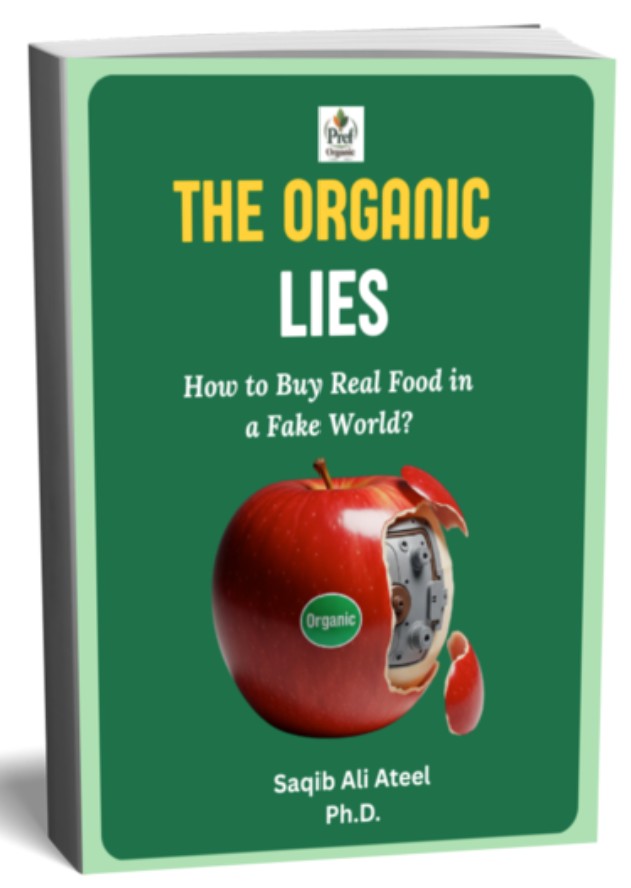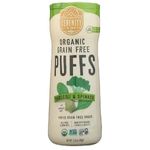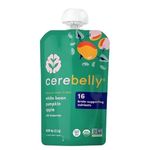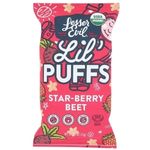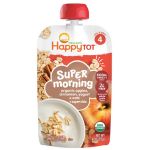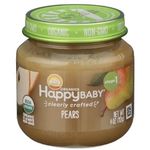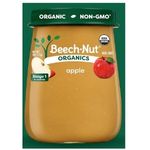The Biological Science of Organic Baby Food: Optimizing
Development in the First 1000 Days
You made the right choice. You stood in the aisle and chose organic baby food, believing it offered the cleanest, most protected start for your child. You bypassed the conventional options, willing to pay the premium for peace of mind. But then, the headlines hit. Reports of toxic heavy metals found in the very products you trusted delivered a fresh, paralyzing wave of parental anxiety.
If you are reeling from this information overload—caught between the fear of hidden toxins and the confusion of marketing labels—please know you are not alone. The feeling of trying to do everything right, only to feel like the system has failed you, is utterly overwhelming.
As a PhD student in sustainable agriculture who also grew up with my hands in the soil on a family farm, I have dedicated my career to understanding the food chain from the root system to the human microbiome. My goal is to guide you through this with scientific clarity and grounded experience. We are going to move beyond the fear-mongering and look at the biological reality. We will break down exactly what is happening in your baby's body during these critical first 1000 days and transform that anxiety into an empowered, scientifically sound feeding strategy.
✨ Summary in Bullets: The "Purity Protocol" Takeaways
- ✓ The "Organic" Ceiling: USDA Organic certification guarantees a clean process (no synthetic pesticides), but it does not test for environmental toxins like heavy metals. To ensure safety, you must look for Purity verification.
- ✓ The Metabolic Window: The first 1000 days are a critical period for "Metabolic Programming." What your baby eats now physically codes their metabolism, immune system, and brain for life.
- ✓ The Toxic Bucket: Babies have a limited capacity to detoxify. Your goal is to minimize the total toxic load (pesticides + heavy metals) so their "bucket" doesn't overflow.
- ✓ Palate Architecture: The "Flavor Window" determines future eating habits. Using savory-forward organic foods prevents the "sweet tooth" trap and builds a resilient eater.
- ✓ The Solution: Don't just buy "Organic." Buy "Tested." We identify the rigorous standards required to find the brands that truly go beyond the label.
The Biological Imperative: Why the First 1000 Days Matter
To truly understand why we must look beyond the USDA Organic label, we must first understand the biological context of your infant's body. In the world of developmental biology, we talk about the First 1000 Days—the period from conception to a child's second birthday.
This is not just a timeframe; it is a biological construction site.
Metabolic Programming: Coding the Software of Life
Think of your baby’s genetics like the hardware of a computer. The DNA is the hard drive—it’s what they inherited from you. But the software—the operating system that tells the hard drive how to run—is being written right now. This process is called Metabolic Programming.
Emerging research in the field of DOHaD (Developmental Origins of Health and Disease) suggests that nutritional exposures during this window set the "thermostat" for your child's future metabolism.
- The Inputs: Every nutrient and every toxin acts as a line of code.
- The Result: These inputs determine how your child’s body will handle sugar, how their immune system will react to threats, and how their brain will wire its reward centers.
From an academic perspective, this shifts the conversation entirely. We aren't just feeding a baby to stop them from being hungry. We are constructing the biological foundation they will live in for the next 80 years. When we introduce synthetic pesticides or endocrine disruptors (chemicals that mimic hormones) into this delicate system, we risk introducing "glitches" into that programming.
The "Toxic Bucket" Theory: Visualizing
Vulnerability
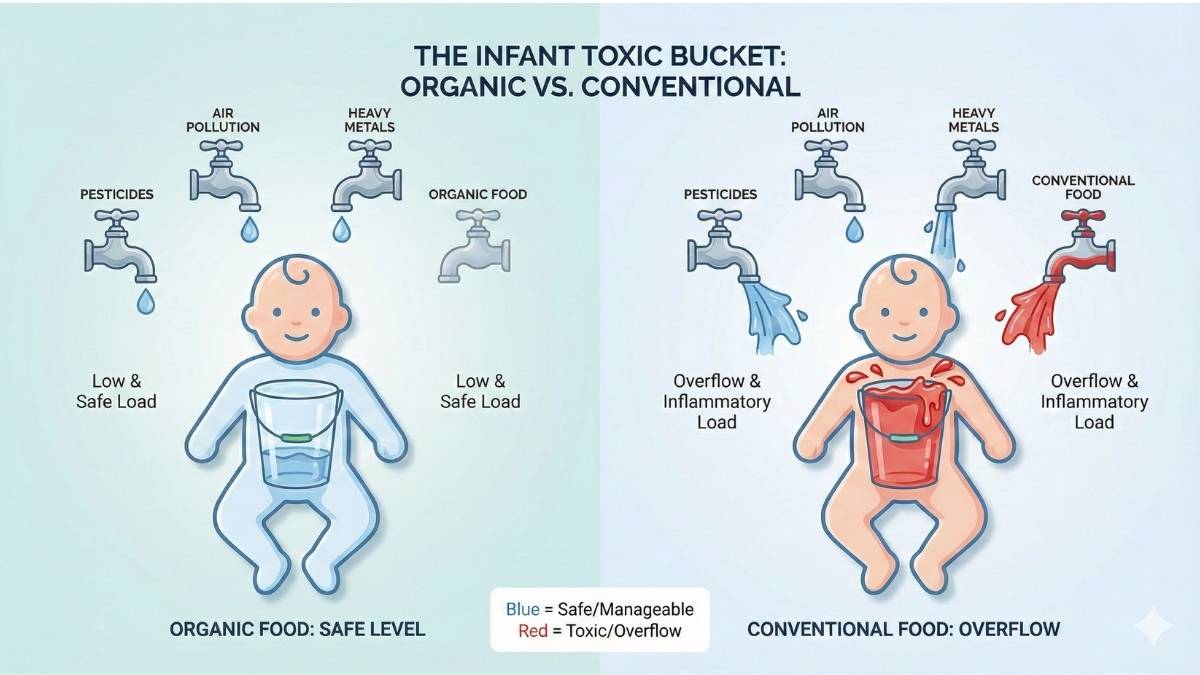
Why is organic baby food so critical in this equation? To explain this, I use the "Toxic Bucket" theory.
Imagine your baby’s body as a small bucket.
1. The Inflow (Toxins): Every day, trace amounts of environmental toxins flow into this bucket. These come from the air they breathe, the water they drink, microplastics in house dust, and, critically, the food they eat.
2. The Outflow (Detoxification): The body has natural drainage systems—the liver, kidneys, and gut—designed to process and eliminate these toxins.
3. The Overflow: Disease, chronic inflammation, and developmental delays occur when the inflow exceeds the outflow capacity—when the bucket overflows.
Why Your Baby’s Bucket is Different
Your baby is not just a miniature adult. Their bucket is smaller, and their drain is slower.
- Immature Detoxification: The enzymatic pathways in an infant's liver that break down toxins (like the cytochrome P450 system) are not fully developed. They cannot process chemicals as efficiently as you can.
- The Blood-Brain Barrier: Most critically, the shield that protects the brain from circulating toxins is still developing. Neurotoxins like lead, mercury, and organophosphate pesticides can cross this barrier more easily in infants.
By choosing organic food, you are effectively turning off the biggest tap. You are removing the massive load of synthetic pesticides, herbicides (like Glyphosate), and synthetic nitrates. This creates "room" in the bucket. This buffer is essential because it allows your baby's developing body to handle the unavoidable environmental "drips" (like air pollution) without overflowing.
The "Organic Paradox": Soil Memory and Heavy
Metals
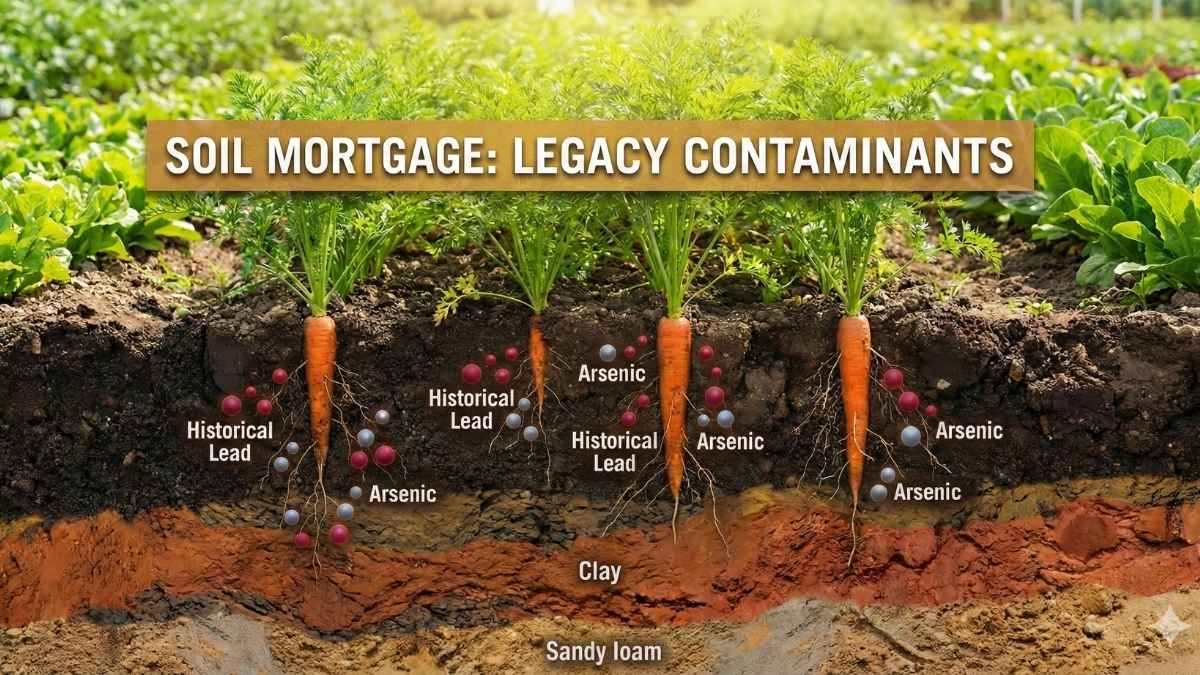
If organic food is grown without chemicals, why do reports consistently find arsenic, lead, and cadmium in certified organic baby food? This paradox causes immense betrayal among parents.
The answer lies in geology and history, not necessarily in farming malpractice.
The Soil Mortgage
Growing up on a farm, I learned that the soil remembers everything. Think of our farmland like a house with a mortgage. The previous owners (the industrial era) took out a massive debt in the form of leaded gasoline, arsenical pesticides (used heavily in cotton farming decades ago), and industrial fallout.
Even though the organic farmer is paying the bills responsibly today (no new chemicals), that old debt—the "Soil Mortgage"—is still in the ground.
- Root Vegetables: Carrots and sweet potatoes grow in the soil. They act like sponges. If that soil has a "mortgage" of lead or cadmium, the vegetable will absorb it. It doesn't matter if the farmer used organic compost; the plant drinks what is in the earth.
- The Rice Problem: Rice is a unique crop. It is often grown in flooded paddies. This waterlogged environment makes naturally occurring arsenic in the soil more water-soluble and accessible to the plant. Rice absorbs arsenic because it chemically mimics Silicon, a nutrient the plant needs to stand up straight.
This is the Trust Gap. The USDA Organic seal certifies the process (the farmer didn't add poisons). It does not certify the purity of the soil (that the land was clean to begin with).
The New Gold Standard: Purity Beyond the Seal
So, how do we navigate this? We cannot stop feeding our children vegetables. They need the nutrients for the metabolic programming we discussed earlier.
The solution is Third-Party Verification. We must move from "Certified Organic" to "Certified Pure."
The Clean Label Project
In my research, I look for data that is independent of the manufacturer. The Clean Label Project (CLP) has emerged as a critical watchdog. Unlike certifications that rely on paperwork, the CLP tests the final product off the shelf. They test for over 400 contaminants, including heavy metals, pesticide residues, and plasticizers.
When you see a brand with the Purity Award, it means their products have tested in the top 33% of their category for cleanliness. This is the new benchmark. It tells you that the brand is not just relying on the USDA seal but is actively testing their soil and their final jars to ensure they aren't passing the "Soil Mortgage" on to your baby.
The Hierarchy of Safety
1. Tier 1 (The Gold Standard): USDA Organic + Clean Label Project Purity Award (or equivalent transparent heavy metal testing).
2. Tier 2 (The Baseline): USDA Organic (Avoids synthetic pesticides/GMOs but lacks heavy metal verification).
3. Tier 3 (Conventional): Standard conventional produce (Higher risk of pesticide residue + heavy metals).
Strategic Feeding: The "Flavor Window" &
Palate Training
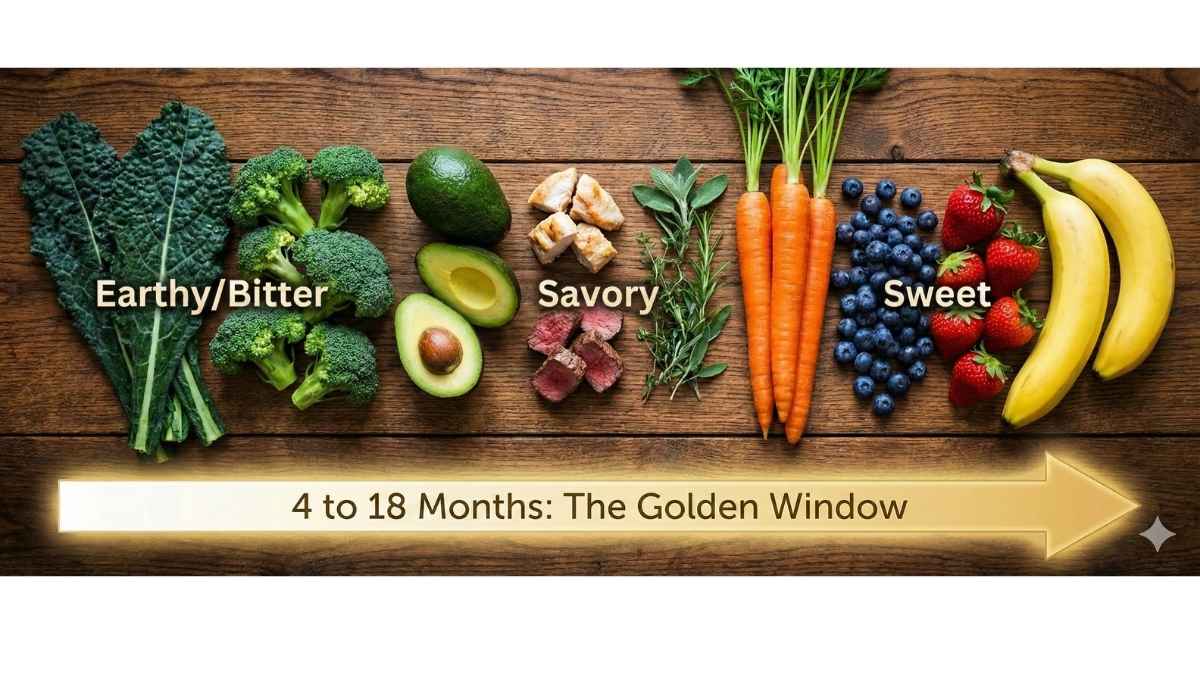
Once we have secured the safety of the food, we must look at the quality of the food. This brings us back to Metabolic Programming and a concept called the "Flavor Window."
Between 4 and 18 months, your baby is more open to new flavors than they will ever be again. This is a biological window of opportunity.
The Sweet Trap
Breast milk and formula are naturally sweet. Babies are born with a preference for sweet flavors because, evolutionarily, sweet meant "safe" and "high calorie."
Many commercial baby foods—even organic ones—cater to this. They use apple puree or pear juice concentrate as a base for everything. You might think you are buying "Spinach & Kale," but if the first ingredient is "Apple," you are training your baby’s metabolism to expect sugar with their veggies.
The Savory Strategy
To optimize your child's development, we need to train their palate for Savory flavors.
- Veggie-First: Introduce bitter greens (broccoli, kale, spinach) and earthy roots (beets, carrots) before introducing sweet fruits.
- Herbs & Spices: Don't be afraid of flavor. In my home garden, we use rosemary, thyme, turmeric, and mild curry. Adding these antioxidant-rich herbs to your baby's food not only expands their palate but also provides anti-inflammatory benefits.
- Protein Density: The best organic baby food brands today are moving away from fruit-heavy blends and towards nutrient-dense fats and proteins. Ethically sourced meats, bone broths, and healthy fats (like avocado oil and olive oil) are essential for myelination—the insulation of nerve fibers in the developing brain. 🧠
Navigating the Market: Practical Solutions for Parents
You are a busy parent. You likely don't have time to puree fresh beets every day at noon. I get it. The modern food system offers convenience, but we have to be smart about how we use it.
The "Best" vs. The "Safest"
When you search for the best organic baby food, you will find lists of brands. But "best" is subjective. For us, "best" means Safety + Nutrient Density.
- Safety: Look for the Purity Award. Brands like Serenity Kids, Cerebelly, and Once Upon a Farm have led the charge here.
- Nutrient Density: Look at the ingredient label. Is "Water" or "Apple Puree" the first ingredient? If so, it's low density. You want whole vegetables, healthy fats, and proteins at the top of the list.
The Delivery Revolution
One of the biggest shifts I’ve seen is the rise of organic baby food delivery services. These aren't just about convenience; they are about Processing.
Most jarred baby food is heat-pasteurized. They boil the food to kill bacteria so it can sit on a shelf for two years. This kills the bad bugs, but it also destroys heat-sensitive vitamins (like Vitamin C and Folate) and changes the flavor profile.
Fresh delivery services (like Little Spoon or Yumi) often use Cold-Pressure Processing (HPP) or fresh-freezing.
- The Benefit: The food retains the vibrant color, texture, and nutrient density of the raw ingredients. It tastes like real food because it is real food.
- The Trade-off: It requires refrigeration and costs more. But if we view food as an investment in health, the ROI on nutrient-dense, low-toxin food during the first 1000 days is incalculable.
The Hybrid Approach
You don't have to be perfect. In farming, we know that flexibility is key. You can use a hybrid approach:
1. The Core Diet: Use fresh, homemade food or high-quality delivery services for the main meals to ensure nutrient density.
2. The Backup: Keep shelf-stable, purity-tested pouches (like Serenity Kids) in the diaper bag for emergencies.
3. The Mixer: Use organic frozen vegetables (peas, spinach) to quickly add nutrient density to simple meals.
Your Purity Checklist: The Best Brands
To help you shop with confidence, here is a quick guide to brands committed to purity, many of whom have earned the Clean Label Project Purity Award. Look for these names to find the best organic baby food options:
Top Organic Baby & Toddler Brands: Pure Ingredients & Trustworthy Sourcing 🌱✨
| BRAND NAME (Linked) | KEY STRENGTHS & PHILOSOPHY | PURITY COMMITMENT & VERIFICATION |
|---|---|---|
| Serenity Kids | Savory-focused; high in healthy fats, and ethically sourced meats. Avoids high-sugar fruits. 🥩🥑 | Clean Label Project Purity Award recipient. 🏆 |
| Cerebelly | Designed by a neurosurgeon to support key brain development milestones. 🧠💡 | First shelf-stable brand with Purity Award; shares all test results by lot code. 🧪 Transparency! |
| Lesser Evil Organic | The product contains at least 95% organic material. Simple, clean snacking. 🍿 | USDA Organic Seal 🏅 |
| Happy TOT | Targeted morning blend of organic fruits, whole grain oats, and chia. High in fiber (3g) and Omega-3s. 🍎🥣 | USDA Organic Seal 🏅 |
| HAPPY BABY Organic | This product has sustainability features recognized by trusted certifications. Eco-conscious choice. 🌎 | USDA Organic Seal 🏅 |
| Beech-Nut | Legacy brand with strong performance in their Naturals and Organics lines. A trusted classic. 🍎🥕 | Many products have received the Clean Label Project Purity Award. 🏆 |
Conclusion: From Fear to Fortitude
The transition to solid foods should be a time of joy, exploration, and messy faces—not fear.
By understanding the "Toxic Bucket" theory, acknowledging the reality of the Soil Mortgage, and utilizing the verification tools provided by organizations like the Clean Label Project, you are doing something profound. You are moving from a passive consumer to an active guardian of your child's biology.
You are not just "feeding" your baby. You are programming their health. You are building their brain. You are protecting their future.
Trust the science. Verify the safety. And enjoy the mess.
Organic Baby Food Delivery Service
Safest Organic Baby Food Brands
Organic Baby Food Pouches vs Jars
Organic Baby Food Shop Solution
High-Value Resources for Further Reading
- The Clean Label Project: The leading authority on contaminant testing in consumer products.
- The First 1,000 Days: A global advocacy group dedicated to improving nutrition during the critical developmental window.
- Healthy Babies Bright Futures: A comprehensive resource for reducing neurotoxic exposure in babies.
